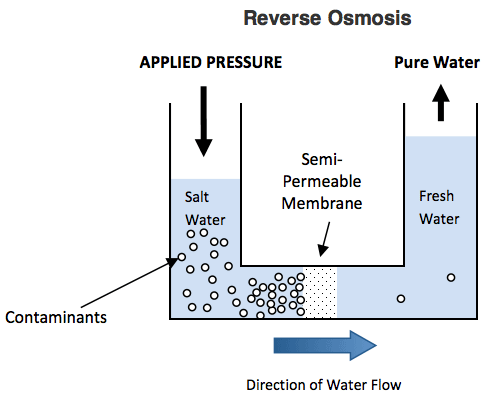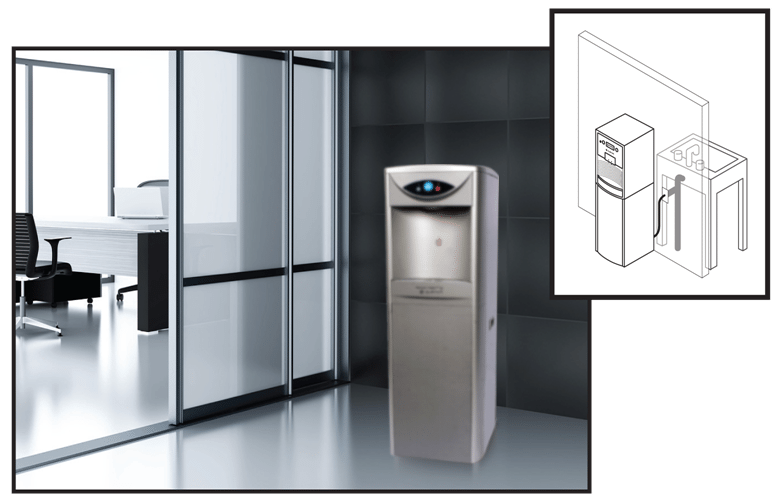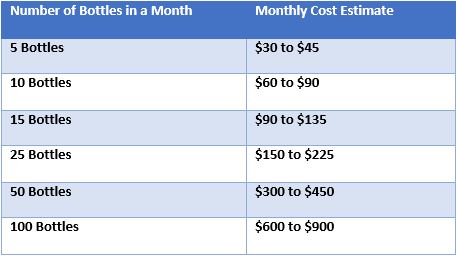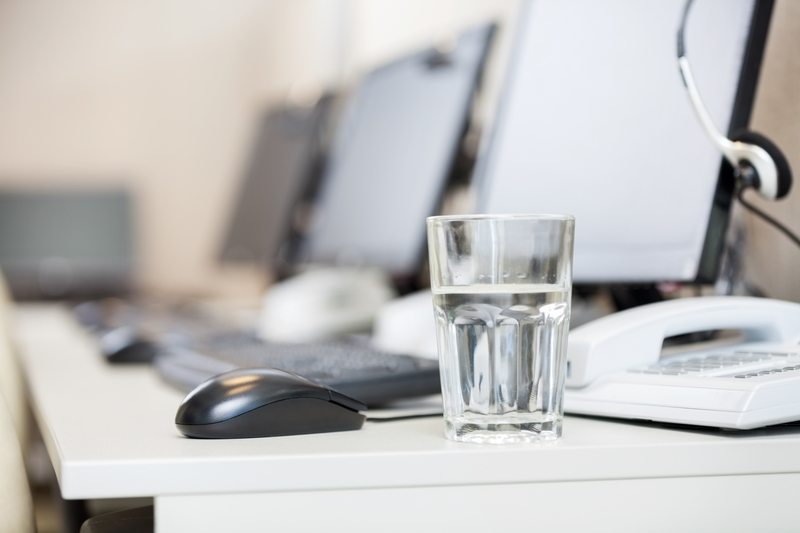Types of Water
It may all just seem like water to the average person, but there are actually different classifications of water, including:
- Tap water
- Spring water
- Mineral water
- Filtered or Purified water
Tap Water
Tap water, also known as running water, city water or municipal water, is water that is supplied to a tap or valve. In most developed countries, tap water is considered suitable to drink. But in areas where tap water is not suitable for drinking, the water can be purified by using a filter or by boiling or distillation.
Spring Water
Spring water is water that comes directly from an underground source, rather than from a surface-level body of water. A common misconception about spring water is the belief that it has no impurities. When in reality, spring water often contains many of the same impurities as tap water. Because spring water is rarely bottled at the underground source, but transported by diesel tankers to a distribution center, it usually goes through a purification process similar to that of tap water.
Mineral Water
Mineral water is water from a mineral spring that contains certain minerals such as salts and sulfur compounds. It is usually effervescent (bubbly) due to gases that are contained within the water. Traditionally, mineral water was bottled at its source. But today, like spring water, most mineral water is bottled at a distribution center for mass production. Therefore, it can often contain similar contaminants to that of tap water.
Filtered or Purified Water
In order to meet the legal definition of ‘purified water’, a certain number of impurities must be removed or reduced to low levels. There are a number of different purification processes that can be used. The most common include distillation, deionization, and reverse osmosis. Purified water is considered to be purer than spring, mineral or tap water.
Types of Filtration
Distilled water is water that has been boiled at a high temperature to remove contaminants before drinking. The process can remove most inorganic minerals, metals, and chemicals. However, because some contaminants have a high melting point (higher than boiling water), this process is not effective at removing every contaminant from the water.
Deionization
Another common filtering process is called deionization. This type of purified water is often referred to as DI water, DIW or de-ionized water. It can sometimes be confused with demineralized water (DM water), which is water that has had most of its mineral ions removed, such as sodium, calcium, iron, copper, chloride, and sulfate. But deionized water has undergone a chemical process that uses ion-exchange resins. Hydrogen and hydroxide ions are exchanged for dissolved minerals and then recombined to form water. This process softens the water by exchanging the natural mineral ions with its own ions.
Deionization is known to produce a high purity water, similar to distilled water, by removing dissolved salts and impurities. However, it cannot remove uncharged organic molecules, viruses or bacteria.
Reverse Osmosis
This is a water purification technology that uses a semipermeable membrane to remove large particles, impurities and contaminants. In this process, external pressure is applied in order to push the water through a membrane to catch the particles and reverse the natural flow of the solvent, which is why it is called reverse osmosis. The downside to this process is that it can often remove many of the desirable minerals from the water along with the harmful contaminants.
Types of Service
There are generally two types of office water services:
- Delivered bottle service
- Point-of-use
Delivered bottle service
In a bottle delivery service, the water is purified at an offsite manufacturing plant, then packaged into jugs and shipped to your office. A water cooler is used to dispense water that can be instantly cold or hot. Filtered water is popular in workplace settings since it tastes better than tap water and produces better-tasting coffee or tea.
Note: Before replacing an empty water jug with a new one, make sure to wash your hands and wipe down the new bottle. This will prevent contamination in the reservoir. The reservoir should be cleaned every 3 to 6 months.
Point-of-use service
A point-of-use water cooler, also known as a bottle-free or bottle-less cooler, is a convenient alternative to delivered bottle service. Instead of using jugs that are delivered to your business, point-of-service water coolers can tap directly into your water supply. In some point-of-use coolers, a filtration process using UV light is used to kill contaminants and remove impurities from your water.
Point-of-use service may be more economical and environmentally friendly by taking out the middle man, who is manufacturing and delivering the big plastic jugs. It is also much more convenient – you no longer need extra space to store empty jugs and you don’t have to lift, carry and replace the jugs when they are out of water.
Some suppliers will even offer a countertop point-of-use water service, which is helpful for those offices who have less floor space.
Price of Office Water
Bottled Water Pricing
With bottled water, you generally pay based on the number of bottles you use each month plus the monthly service fee your supplier charges. Prices will vary by supplier, but you can estimate about $6-$9 per bottle each month. The price you ultimately pay will be dependent on the size of your office and the amount of water your employees drink.
Point-of-use Water Pricing
Suppliers typically charge a monthly rental fee for a bottle-free cooler system. Depending on the supplier, the average cost of a point-of-use water cooler is about $35 a month.
Additional FeesKeep in mind that there may be other fees associated with your water service. Additional fees will depend on your supplier, the terms of your contract, and the type of service you select. Additional fees may include:
- Installation
- Maintenance
- Cancellation
- Delivery surcharges
Things to Look for when Choosing an Office Water Service
Here are a few things to keep in mind when you are shopping for an office water service for your business:
- Variety
The type of water and water filtration system will vary depending on the supplier. Be sure to read up on the different filtration processes so you can know about your range of options before you start shopping for a supplier. - Contract
Contract lengths will vary depending on the supplier. Typically, they offer a 1-2 year contract or month to month. If you plan on using a water service for the long-term, you can usually save money by going with a longer contract. - Maintenance
Depending on the supplier, annual preventive maintenance may or may not be included. Some suppliers only include certain maintenance updates, but others come at an additional cost. Ask potential suppliers about their maintenance policy in advance. - Delivery
If you are having bottled water delivered to your business, you will need to set up a delivery schedule. The frequency of delivery will affect the number of bottles you will need to store at your business. Depending how much water you go through, you may have weekly, bi-weekly, or monthly delivery. Make sure you have the storage space available for multiple jugs of water before initiating the delivery service. - Customer service
When you speak with potential office water suppliers, pay attention to the service they provide. Are they helpful? Knowledgeable? Able to answer your questions? Timely in responding to your needs? Often times, you can get a good feel for their customer service in just a few minutes of brief conversation over the phone.
It is also helpful to read customer reviews and ratings for the water suppliers you are considering. Look for comments regarding their service, product reliability, maintenance policy, and taste of their water.
Ready to Make a Decision?
Interested in a water service for your business? Now that you know about the different services available and their approximate cost, are you ready to get free price quotes? You can fill out our form and we will put you in touch with up to 5 office water suppliers who will give you free price quotes and answer any further questions you may have. There is no obligation to buy.








